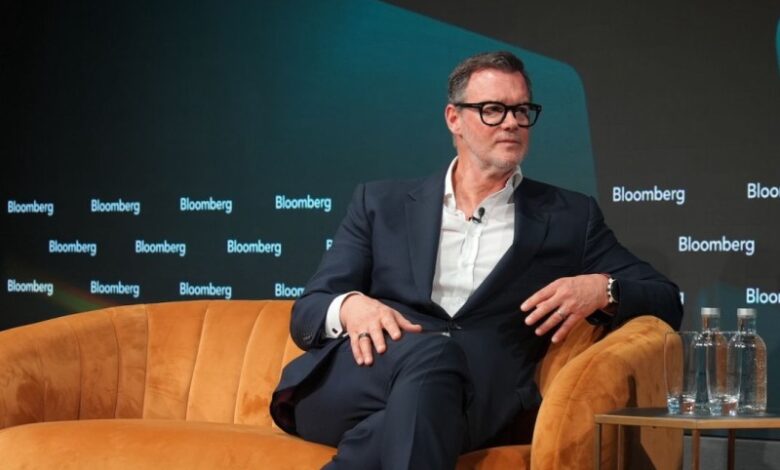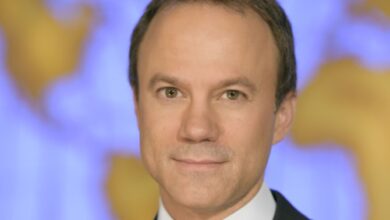Stephen Dainton: The Strategic Visionary Behind Barclays Investment Bank

Stephen Dainton, a highly respected figure in the global financial industry, serves as the President of Barclays Bank PLC and Head of Investment Bank Management. Known for his deep market insight, leadership acumen, and ability to steer complex investment operations, Dainton embodies the qualities of a modern financial strategist. With over three decades of experience across some of the world’s most prestigious financial institutions—Barclays, Credit Suisse, Goldman Sachs, and CIBC—he has built a career grounded in performance, integrity, and strategic foresight.
This article delves into his professional journey, educational foundation, leadership philosophy, and contributions to Barclays’ ongoing transformation.
Early Life and Education
Born in February 1967 in the United Kingdom, Stephen Dainton pursued his higher education at the University of Exeter, graduating with a Bachelor of Arts (BA) in 1989. His time at Exeter provided him not only with a strong academic base but also with the interpersonal and analytical skills that would later define his success in global finance.
From an early stage, Dainton demonstrated a keen interest in markets and economics, which guided him toward a career that would span continents and financial eras—from the pre-digital trading floors of the 1980s to today’s algorithm-driven investment environments.
The Foundation Years: CIBC (1987–1994)
Stephen Dainton began his career at CIBC (Canadian Imperial Bank of Commerce), one of North America’s leading financial institutions. Joining in 1987, he spent over seven years working in FX (Foreign Exchange) and Equities.
During this time, he honed his expertise in financial instruments, client management, and market trading strategies. His role demanded not just technical proficiency but also the ability to interpret complex market trends—a skill that would serve as a foundation for his later leadership positions.
Building Global Experience: Donaldson, Lufkin & Jenrette (1994–2000)
In 1994, Dainton transitioned to Donaldson, Lufkin & Jenrette (DLJ), a prominent investment bank renowned for its equity research and corporate finance capabilities. Over six years, he rose to the role of Managing Director, operating between London and New York.
This phase marked a turning point in his career. Working across two major financial centres exposed him to diverse markets and regulatory environments. It also deepened his understanding of international equities and global market structures. His tenure at DLJ established him as a versatile leader with a transatlantic perspective—something relatively rare among European bankers of the time.
Leadership in Global Markets: Goldman Sachs (2000–2003)
Following his success at DLJ, Stephen Dainton joined Goldman Sachs in September 2000 as a Managing Director. At Goldman, he led teams responsible for U.S. and International Equities, further strengthening his command of global market operations.
This period was marked by rapid technological advancement in trading systems and the rise of institutional investors. Dainton’s leadership at Goldman reflected adaptability and innovation—qualities that distinguished him as a forward-thinking executive capable of navigating volatility while maintaining profitability.
Strategic Leadership at Credit Suisse (2003–2017)
Perhaps one of the most defining chapters in Dainton’s career came at Credit Suisse, where he served for 14 years in senior leadership roles. Joining in June 2003, he eventually became Managing Director, Head of Equities, and later Co-Head of Global Markets for the EMEA region (Europe, the Middle East, and Africa).
At Credit Suisse, Dainton played a key role in modernising trading operations, diversifying product portfolios, and improving risk management frameworks. He led several transformative initiatives that helped the bank stabilise during periods of global financial turbulence, including the 2008 crisis and the subsequent regulatory overhaul.
His reputation for pragmatic decision-making, clear communication, and team-oriented leadership solidified his position as one of the most trusted figures in investment banking.
Joining Barclays: A New Era of Leadership (2017–Present)
In September 2017, Stephen Dainton joined Barclays Investment Bank as Global Head of Equities and Co-Head of Global Markets. His appointment came during a period of significant restructuring within Barclays, as the bank sought to revitalise its investment division amid tightening regulations and shifting market dynamics.
Within a few years, Dainton’s performance and strategic vision propelled him to the role of President of Barclays Bank PLC and Head of Investment Bank Management. In this capacity, he now oversees the entire investment banking strategy, governance, and performance.
Under his guidance, Barclays has strengthened its position as one of Europe’s most competitive investment banks. His focus on client-centric operations, disciplined cost management, and technological integration has led to improved profitability and enhanced market reputation.
Leadership Style and Strategic Vision
Stephen Dainton’s leadership style is characterised by three defining traits: clarity, collaboration, and resilience.
Emphasis on People and Culture
Dainton believes that a strong organisational culture is vital to long-term success. At Barclays, he has fostered an environment that values diversity, transparency, and ethical decision-making. He encourages open dialogue, empowering employees to contribute ideas and challenge convention.
Data-Driven Decision Making
With decades of market experience, Dainton combines intuition with analytics. He supports the adoption of AI and automation in trading, compliance, and risk functions—ensuring that Barclays remains competitive in an increasingly digitalised market landscape.
Long-Term Value Creation
Unlike short-term profit chasers, Dainton’s approach centres on sustainable growth. He has advocated for strengthening client relationships through innovation and strategic partnerships, ensuring that the bank’s growth aligns with both shareholder interests and societal responsibility.
Personal Life, Age, Wife, And Children
Stephen Dainton, born in February 1967, is a British banker known for his leadership at Barclays and his strong family values. He is married and the proud father of three children — two sons and a daughter.
His eldest son, Alexander Dainton, recently completed the New York City Marathon, a milestone Stephen publicly celebrated, highlighting his pride and admiration for his son’s dedication and perseverance.
Dainton has occasionally shared glimpses of his family life through moments like attending the Barclays Women’s Super League North London Derby with his wife and children — reflecting his deep appreciation for family, equality, and community engagement.
Despite his high-profile role in global finance, he remains deeply private, maintaining clear boundaries between his professional responsibilities and personal life — a balance that has earned him widespread respect for his professionalism, humility, and authenticity.
Recognition and Influence
Throughout his career, Stephen Dainton has been recognised not only for his executive capabilities but also for his ability to drive institutional trust and stability. His leadership is frequently cited in financial press coverage as a key factor behind Barclays’ renewed global competitiveness.
He is respected for his analytical rigour, ethical standards, and calm demeanour during high-pressure decision-making. As markets continue to evolve, Dainton remains a guiding force for Barclays’ transformation into a modern, digitally empowered, and globally responsible investment bank.
Stephen Dainton’s Impact on the Future of Banking
In the fast-changing financial landscape, Stephen Dainton exemplifies the new breed of investment leaders who blend traditional market expertise with a progressive mindset. His ability to balance short-term performance with long-term strategy continues to define Barclays’ path forward.
Under his direction, the bank has:
-
Reinforced its position as a top European player in investment banking.
-
Strengthened its equities and fixed-income trading arms.
-
Emphasised diversity, inclusion, and employee wellbeing.
-
Advocated for the use of cutting-edge technology to enhance operational efficiency.
These initiatives underscore Dainton’s belief that the future of banking lies in agility, innovation, and ethical leadership.
Conclusion
Stephen Dainton stands as one of the most accomplished figures in international finance. From his early beginnings at CIBC to his current leadership at Barclays, his journey reflects persistence, adaptability, and integrity.
With over 35 years of experience across the world’s leading financial institutions, Dainton’s story is not merely one of corporate success but of strategic vision. His dedication to nurturing talent, embracing technology, and upholding ethical governance has made him a cornerstone of modern banking leadership.
In an industry that continually faces scrutiny and disruption, Stephen Dainton remains a figure of stability, foresight, and innovation—a leader whose influence will shape Barclays and the broader financial sector for years to come.



